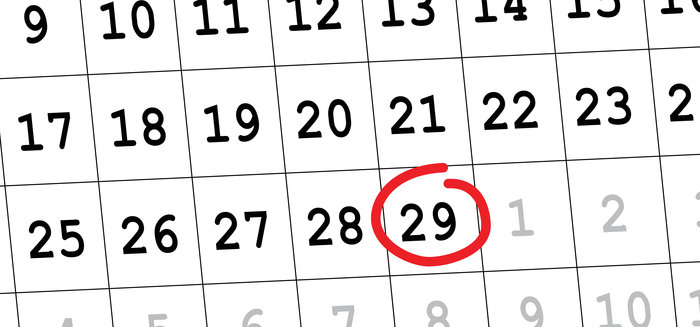
Bissextile
[bi-SEKS-tile]
Part of speech: adjective
Origin: Latin, late 16th century
1.
(of a year) having the extra day (29 February) of a leap year.
2.
Anything related to the extra day of a leap year.
Examples of Bissextile in a sentence
"Since he was born in a bissextile year, his mother joked that he got his driver’s license when he was 4 years old."
"Embrace the bissextile day every four years, and do something fun and out of the ordinary."
About Bissextile
Bissextile can be used to describe the day (February 29) or the full year that occurs every four years, also known as Leap Year. Earth travels around the Sun in 365 days and a little less than ¼ of a full day. Instead of adding on a random quarter of an afternoon every year, the Gregorian calendar accounted for the extra time by inserting an extra day into February.
Did you Know?
The word bissextile comes from Latin, with “bis” meaning twice and “sextus” meaning sixth. On February 29 the “sixth” might not make much sense, but in the previous Julian calendar, the extra day was the sixth day before the beginning of March. If February 24 was a bad day for you, you had a chance to do it over with a second February 24.








